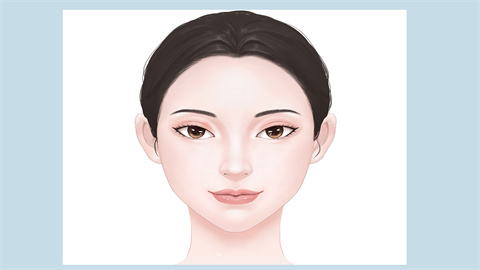Why do my eyes hurt after double eyelid surgery?
Generally, eye pain after double eyelid surgery may be related to postoperative tissue trauma response, eye muscle tension, conjunctivitis, dry eye syndrome, corneal epithelial injury, and other factors. It is recommended to seek timely medical attention, identify the underlying cause, and undergo appropriate treatment under the guidance of a qualified physician. A detailed analysis is as follows:

1. Postoperative Tissue Trauma Response
During double eyelid surgery, the ocular tissues experience a certain degree of trauma, leading to an inflammatory response post-surgery, with the release of inflammatory mediators, which may cause eye pain. It is recommended to follow medical advice regarding appropriate cold compresses and warm compresses after surgery to alleviate pain.
2. Eye Muscle Tension
During the surgery, the ocular muscles may temporarily become tense or spastic due to surgical manipulation, resulting in postoperative eye pain. It is recommended to rest adequately after surgery and avoid prolonged eye strain.
3. Conjunctivitis
Conjunctivitis is commonly caused by microbial infections such as bacteria or viruses. Inflammation can lead to symptoms including ocular redness, pain, foreign body sensation, and increased secretions. It is typically accompanied by photophobia, tearing, and blurred vision. Treatment may include medications such as levofloxacin eye drops, acyclovir eye drops, erythromycin ointment, and others, as directed by a physician.
4. Dry Eye Syndrome
Dry eye syndrome is usually caused by insufficient tear secretion or excessive tear evaporation. Dry eye affects tear production, causing symptoms such as dryness and pain in the eyes. It is typically accompanied by photophobia, eye fatigue, and redness. Treatment may involve medications such as sodium hyaluronate eye drops, pilocarpine eye drops, pranoprofen eye drops, and others, as advised by a doctor.
5. Corneal Epithelial Injury
The corneal epithelium may be inadvertently injured during surgery. Corneal epithelial damage can cause symptoms such as eye pain, foreign body sensation, and tearing. It may also lead to photophobia and decreased vision. Treatment may involve medications such as tobramycin eye drops, defibrotide eye gel (deproteinized calf blood extract), vitamin A palmitate eye gel, and others, as prescribed by a physician.
Maintaining healthy lifestyle habits is important. Avoid prolonged eye strain and allow adequate rest to reduce ocular burden.




